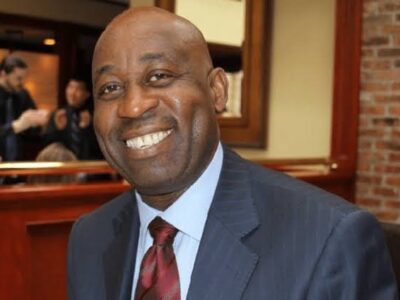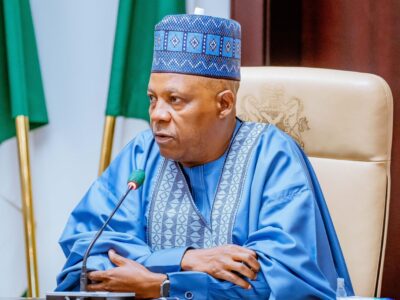The All Progressives Congress (APC) National Woman Leader, Dr. Mary Alile, has urged Nigerians to stop worrying about the possibility of the country drifting toward a one-party system, insisting that the real priority should be sustaining quality leadership.
Alile spoke in Abuja during the inauguration of APC-registered support groups drawn from all 36 states and the Federal Capital Territory (FCT).
She dismissed concerns that political dominance by one party poses a threat to democracy, arguing that governance — not party numbers — should guide national discourse.
“I’m not worried at all that Nigeria might move towards a one-party system. I’m worried about good governance — and that is what truly matters,” she said.
According to her, citizens should judge leadership by results, not party competition.
“Whether it becomes a one-party system or not, our focus should be on governance. And if good governance comes through a one-party system, then I will take the good governance,” she added.
Alile likened effective leadership to medical care: “If you are sick in the hospital, what you need is a good doctor — and that is what we have in Nigeria.”
She hailed President Bola Ahmed Tinubu’s two years in office, pointing to achievements in road infrastructure, women empowerment, economic support programmes, and the new student loan scheme, which she described as unprecedented.
“No child wants to drop out of school at this time. This is the first of its kind in Nigeria,” she said, emphasizing the need for continuity.
To those eyeing the presidency in 2027, she had a firm message: “There is no vacancy in the Villa. They should look for somewhere else to perch.”
Commenting on the state of the opposition, Alile claimed that rival parties were fast collapsing, noting that even after a recent convention, “the last man standing has already stepped down.”
She questioned the credibility of those predicting a strong opposition comeback, insisting that “the only party still standing in Nigeria is the APC.”
Alile said her push for continuity goes beyond politics and is rooted in concern for younger generations.
“It’s about my children, the next generation, and those coming after us,” she said, adding that Gen Z and Gen Alpha “will not accept poor leadership” and are ready to claim their place in shaping the country’s future.
She concluded with a stark warning to Nigerians aligned with struggling political groups:
“Jump ship. Because if you don’t jump, you will drown. It’s as simple as that.”




















Comments